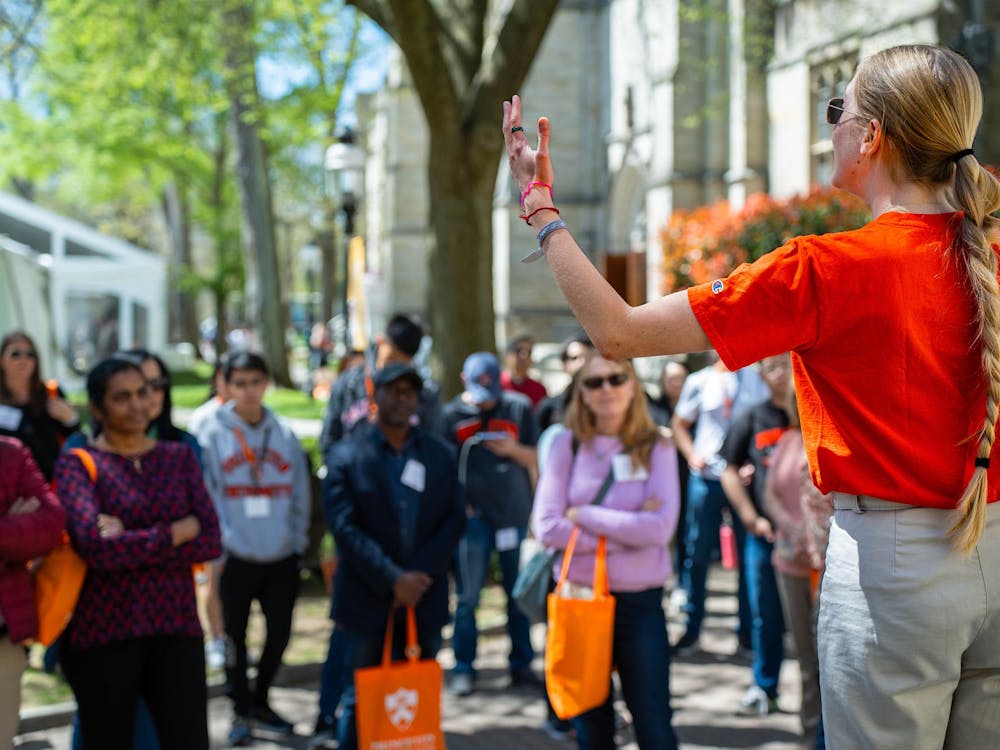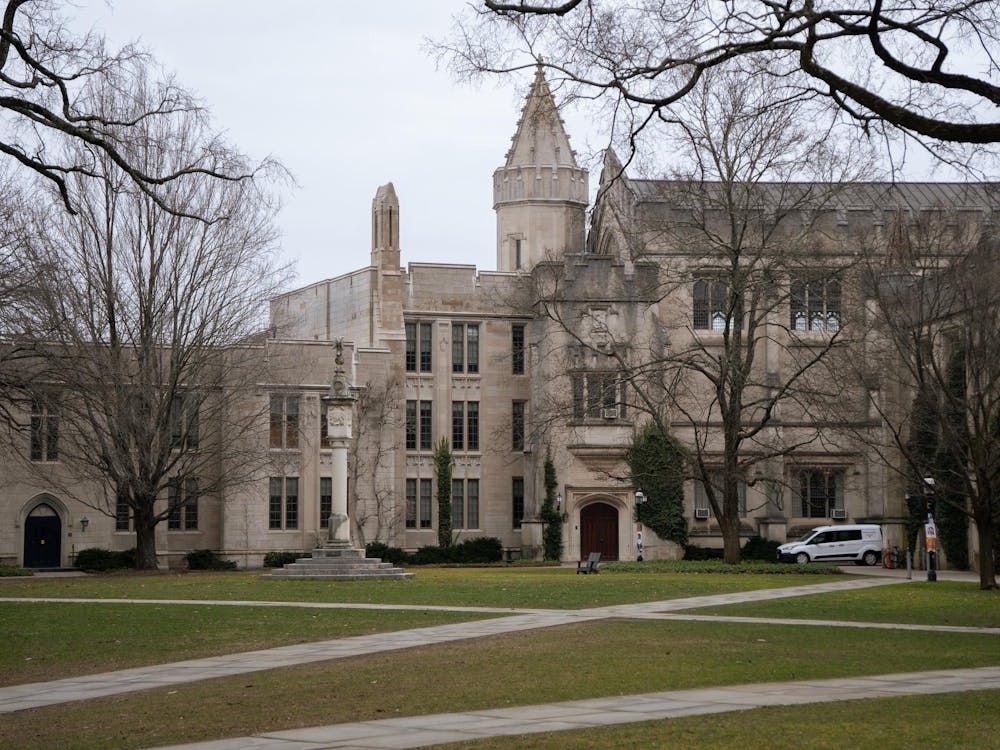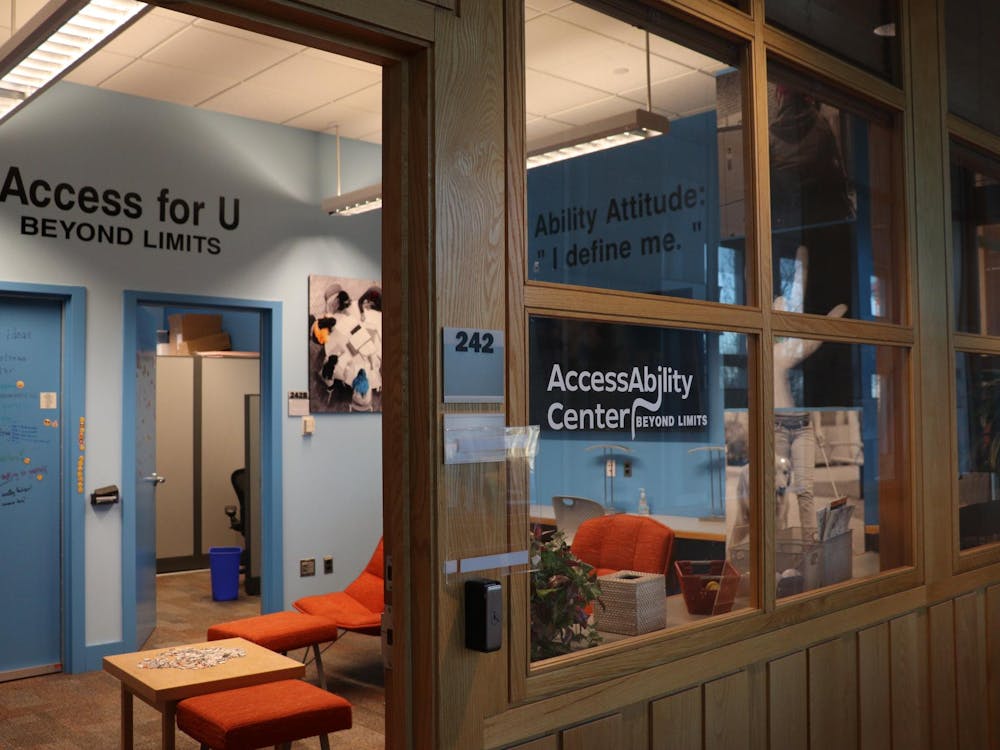A study designed to examine students’ immune responses to the meningitis B vaccine found evidence for the vaccine’s strength at the level normally used to license vaccines, researcher Nicole Basta said.
Basta is a visiting researcher in the ecology and evolutionary biology department who led two studies on the effectiveness of the vaccine on University students last academic year. She presented her findings at a seminar discussion on Tuesday.
Blood samples from 59 percent of students who received the first dose of the vaccine demonstrated an immune response using the titer 1:4 standard, compared to 21 percent for unvaccinated students, Basta explained. Sixty-six percent of students who received both doses on the recommended schedule, which meant receiving the first dose in December and the second dose in February, demonstrated an immune response using the titer 1:4 standard when the study was conducted in April.
The results were also demonstrated to be statistically significant under the stricter titer 1:8 standard, she noted.
The titer 1:4 standard means the sample was diluted by 50 percent two times and still showed a positive result. The 1:8 standard means the sample was diluted by 50 percent three times and still showed a positive result.
The study, set up in the lounge of Carl Icahn Laboratory, aimed to recruit about 10 percent of the undergraduate student body, she said, noting it ended up recruiting 607 participants, which was on target. Participation in the voluntary study along sex, race and class year lines was representative of the student body, she added, noting a small number of graduate students volunteered as well.
“[The $20 PAW Points gift card] was very popular,” Basta said.
The proportion of students who received both doses of the vaccine was above 90 percent in every class, with 100 percent of the Class of 2017 receiving the first dose, Basta said. Overall, 98 percent of undergraduate students got the first dose of the vaccine and 93 percent got the second dose, she said.
“One of the things we wanted to look at in our survey was why some students only got the first dose of the vaccine and why some students remained unvaccinated,” Basta said. “Among the unvaccinated students, and this was about 21 students, the most commonly cited reasons were they were not personally concerned with meningococcal B or that they were concerned about the side effects of the vaccine or they chose ‘other.’ ”
Some of these other reasons included allergies or previous adverse reactions to vaccines, she added. Students who got the first dose but failed to complete the series cited reasons including time pressures and perceived side effects after the first dose, she said.
The Bexsero vaccine is unique in that most other bacterial vaccines had been based on detecting the outer surface of harmful cells, Basta said, but since meningitis B bacteria’s polysaccharide shells are similar to those of normal cells in the human body, the genome of the bacteria was sequenced and run through a computer to search for possible antigens in a process called reverse vaccinology.
Meningitis B is a significant public health concern because without treatment, only 50 percent of those infected will survive, and even with treatment, 90 percent will survive, she said. However, meningitis cases in general, not just serogroup B cases, have decreased since 2005, she added.

After the Centers for Disease Control and Prevention declared an outbreak of meningitis B at the University in May 2013, the University and researchers were initially hopeful that summer break would disrupt the transmission of the disease, Basta explained, noting a fifth case that was diagnosed in a student in June was disappointing.
A patient who presented to University Health Services with meningitis B in October 2013 indicated to researchers that the strain of meningitis B at the University was demonstrating remarkably sustained transmission over time, which prompted UHS to heighten its awareness toward fever cases and increase public awareness about precautions, she noted.
The campaign to make students aware of the danger of meningitis B and precautions they could take was particularly innovative in its messaging, Basta added.
Another setback was the death of a Drexel University student in March 2014 after contact with a University student, in part because the mood on campus until then had been celebratory at the apparent end of the danger of meningitis B, she added.
After the discussion, a student who was a residential college adviser last year asked Basta about the messaging RCAs received about the effectiveness of the vaccine. The student said it seemed to her that the message was that it was safe to interact with unvaccinated individuals again, but this appeared to be untrue since a Drexel student died after contact with a University student.
“At that time, no studies had been done on Bexsero and carriage,” Basta said, adding that since then, one study has been published in the U.K. that potentially shows that on a longer time scale, Bexsero may have an effect on transmission from vaccinated to unvaccinated individuals, but there is not enough evidence that this effect exists on a shorter time scale.
“That was just not known at the time,” she said.
The seminar, titled “The Princeton University MenB Outbreak: Impact of Vaccination on Students’ Immune Response,” was held at 12:15 p.m. in Robertson Hall Bowl 2. It was co-sponsored by the Global Health Initiative and the Wilson School’s Center for Health and Wellbeing.








